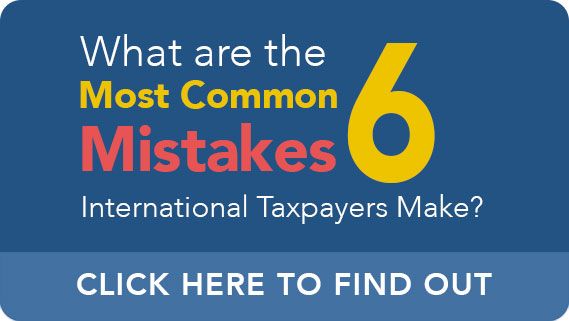Tax Preparation for US Expats Living Abroad
The life of a U.S. expatriate can be a complicated endeavor. Establishing yourself in another country – without the familiar trappings of American society – can easily leave you feeling overwhelmed, especially when it comes to tax time. The tangled web of codes and guidelines that govern U.S. tax law can throw even seasoned accountants for a loop; for an American expat, that body of laws can seem downright indecipherable.
Luckily, those expats do not need to face the tax system alone. Ted Kleinman, CPA, has more than 30 years’ experience helping American expats navigate the treacherous waters of credits, exclusions, and tax burdens. If you are an American living abroad and you find yourself wondering what you may owe or how to submit your returns, contact US Tax Help at (541) 923-0903.
How US Tax Laws Apply to Expatriates
One of the most common mistakes expats tend to make is that they assume they are exempt from U.S. tax laws because they no longer live in the country. Unfortunately, the United States is one of only two countries in the world – the other being Eritrea – that determines citizens’ tax burdens based on country of origin, not physical location. This means that no matter where an American citizen may go, they are still beholden to the U.S. government where worldwide taxable income is concerned.
However, the U.S. tax code does offer certain advantages to citizens living abroad, usually in the form of specific credits or exceptions related to active income, or income earned through employment of some kind (as opposed to passive income from, say, a rental property). Additional factors can affect your final tally, including whether you are married, self-employed, or the owner of foreign assets. The deadlines to file can also vary depending on your living situation; though most expats are expected to file by the standard April 15 deadline, extensions are not uncommon. A qualified CPA can help you figure out which deadlines apply and which forms you must fill out.
Credits and Exemptions for American Expats
Without a doubt, the most widely used and advantageous exemption for expatriates is the foreign earned income exclusion. This handy tax break allows Americans living abroad to reduce their taxable income by up to a maximum of $105,600 in 2019. Note that this only applies to wages earned from services provided outside the United States, either on behalf of a company or while self-employed.
To qualify for this exemption, you must pass one of two tests: either the bona fide resident test or the physical presence test:
- To pass the bona fide resident test, you must be a legitimate resident of a foreign country for a period of time that includes one full tax year.
- To pass the physical presence tests, you must spend at least 330 days outside of the United States over a 12-month period.
The eligibility of any taxpayer to apply these standards and receive the foreign earned income exclusion can change based on the status of tax treaties and a number of other factors. Also, because the Internal Revenue Service reviews each application for exemption on a case-by-case basis, there is no guarantee that you will receive the tax break, even if you believe you pass one of these tests.
On top of the FEIE, you may also be eligible for a foreign housing exclusion or deduction, as long as you meet one of the standards listed above. This will allow you to reduce your tax burden based on the amount of money you spent on housing costs. An experienced accountant can help you determine whether you meet the requirements and, if so, which option would save you the most money.
Foreign Accounts and Assets for Expatriates
Americans living abroad probably have assets and bank accounts in the country where they live; these assets and accounts need to be reported to the IRS, even if they don’t end up impacting your final tax bill. The Foreign Account Tax Compliance Act (FATCA) and Report of Foreign Bank and Financial Accounts (FBAR) both feature their own unique forms that must be included with your tax return if you have foreign financial assets, including a bank account, trust, or mutual fund.
The thresholds for reporting assets vary depending on your circumstances: married couples who live abroad and file jointly have higher thresholds for FATCA, whereas the FBAR has the same requirements for anyone who files. If you have foreign accounts, speak to a knowledgeable CPA to determine what you need to report to the IRS.
Don’t Jeopardize Your Finances – Call US Tax Help Today
If you have tried to figure out what you owe the IRS only to find yourself scratching your head in confusion, you are not alone. Even the less complicated avenues for filing taxes can be difficult; add in the complications of life in another country, with all its attendant accounts, assets, and income, and the whole ordeal only becomes more arcane. Don’t jeopardize your standing with the IRS – and by extension, your financial future. Call U.S. Tax Help and let our specialists guide you through the filing process. Contact us today at (541) 923-0903.
